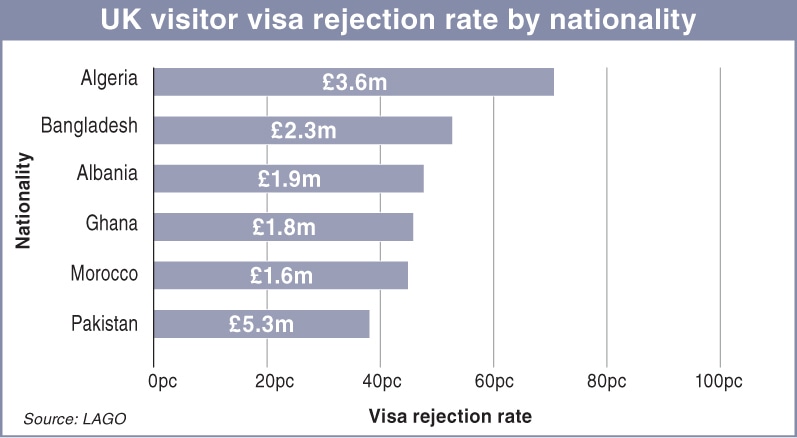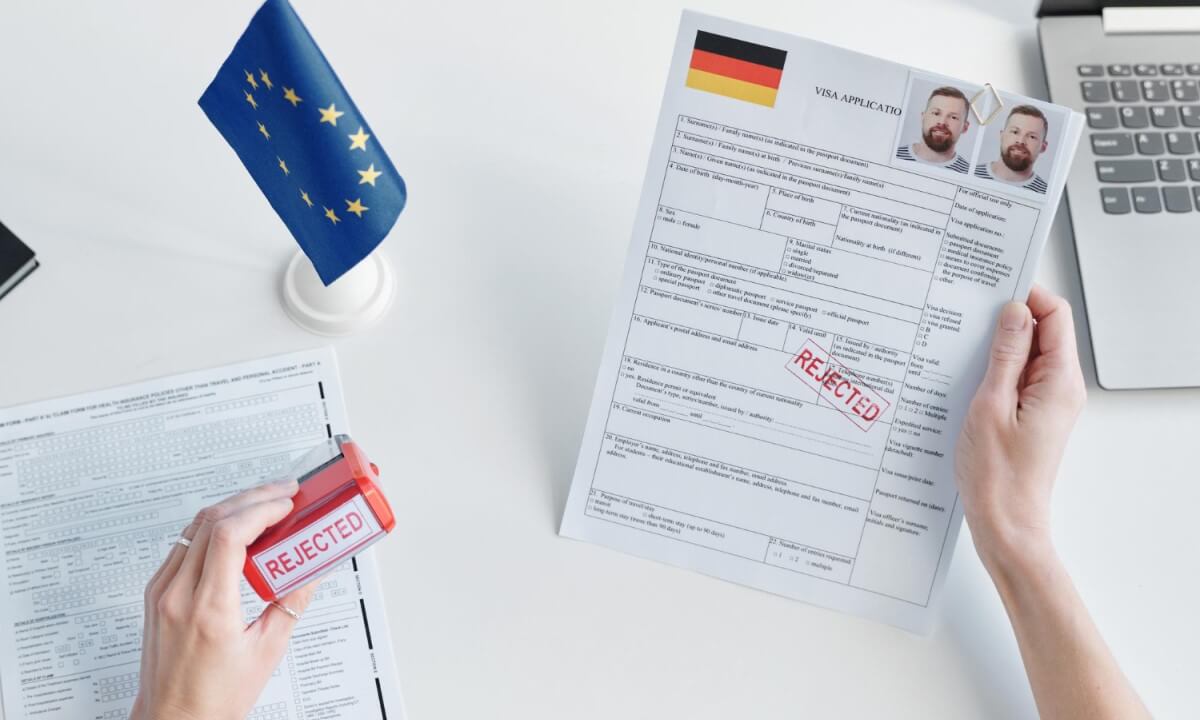Visa Rejections
LONDON: The United Kingdom and Schengen countries have collectively raised millions of pounds and euros from fees charged for rejected visa applications from Pakistan, according to new research published this month.
The analysis, conducted by Lago Collective—a group of researchers, policymakers, and designers—reveals that Pakistanis spent £5.3 million on UK visa applications that were ultimately rejected. The rejection rate for these applications was close to 40 percent in 2023.

Similarly, about 50 percent of Schengen visa applications from Pakistan were rejected in the same year, costing Pakistani applicants €3.344 million.
The research, which was published in collaboration with the EUobserver, reported that EU governments collectively earned €130 million per year from fees for rejected visa applications.
These fees have been termed ‘reverse remittances’ because they represent money flowing from poorer to richer countries.
The analysis, compiled by Marta Foresti and Otho Mantegazza at Lago Collective, indicated that the financial burden of Schengen visa rejections in 2023 amounted to €130 million.
Foresti, the founder of Lago Collective and a senior visiting fellow at ODI, commented on the tangible consequences of visa inequality, highlighting that the world’s poorest individuals bear the brunt of these costs.
She emphasized that the issue of rejected visa costs is rarely discussed in the context of aid or migration and urged for a change in this discourse.
Foresti noted the high rejection rate for short-term visa applications from Pakistan, which stands at approximately 40 percent for both Schengen countries and the UK.
This high rejection rate translates into substantial costs for Pakistani nationals, despite the strong ties between Pakistan, Europe, and the UK.
She also referenced the tragic incident of the Greece boat capsize, which underscored the extreme measures people are forced to take when legal pathways to Europe are inaccessible.
The EUobserver report suggested that the total sum of fees from rejected visas is likely to increase in 2024. This is due to the visa application fee for traveling to the EU increasing from €80 to €90 for adults starting June 11.
The report also mentioned that the UK raised £44 million from non-refundable rejected visa fees, with African and Asian countries bearing 90 percent of the costs for rejected Schengen visas.
In an article for LSE blogs last year, Foresti highlighted the disparity in visa regimes. She illustrated this with an example: an Italian national can obtain a visa on arrival in Sierra Leone for £30, whereas a Sierra Leonean traveling to Italy for a business meeting must endure a costly and time-consuming process involving multiple trips to the Italian Consulate in Abidjan, Côte d’Ivoire.
The analysis noted that the fee for a short-term Schengen visa is €80, while the equivalent fee for a UK visa is £100. Countries with high rejection rates for UK visas include Nigeria, Pakistan, Bangladesh, and Algeria, resulting in significant financial burdens: £5.8 million, £5.3 million, £2.3 million, and £3.6 million, respectively.
With visa application fees set to increase to €90 for Schengen visas and £120 for UK visas, the financial impact of rejected visas is expected to rise in 2024.
This situation is likely to be exacerbated by the tightening of migration policies in many European countries, particularly those facing upcoming elections.
In a statement, Lago Collective noted that these costs represent just the tip of the iceberg. Many applicants incur additional expenses beyond the basic application fee, including payments to private agencies for processing visa applications and brokers for extra services. Furthermore, the inability to travel for business or leisure leads to significant losses for those affected.
I am a dynamic professional, specializing in Peace and Conflict Studies, Conflict Management and Resolution, and International Relations. My expertise is particularly focused on South Asian Conflicts and the intricacies of the Indian Ocean and Asia Pacific Politics. With my skills as a Content Writer, I serve as a bridge between academia and the public, translating complex global issues into accessible narratives. My passion for fostering understanding and cooperation on the national and international stage drives me to make meaningful contributions to peace and global discourse.










